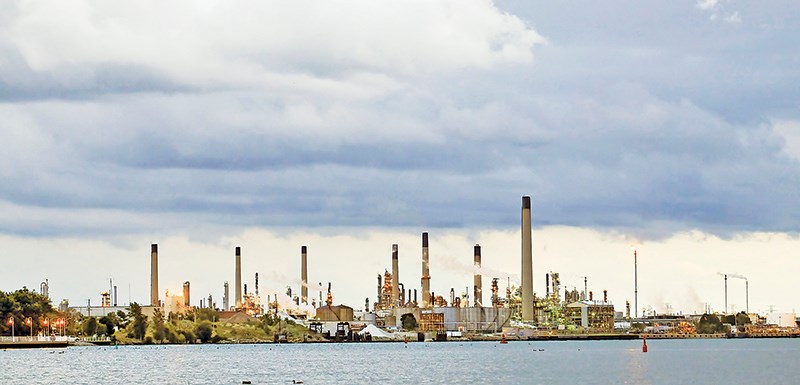Allen Wells believed that knowledge was power — especially when it came to Sarnia’s emergency notification system.
The longtime CAER (Community Awareness and Emergency Response) administrator was a staunch advocate for improved safety and emergency preparedness in Sarnia’s Chemical Valley. He died in 2019 but his message is still as important as ever: residents should have access to as much information as possible, so they can be better prepared in the event of disaster.
I thought of Allen this month after a spill in the St. Clair River left many residents and community officials scrambling for information and demanding answers.
In recent years, he had grown critical of the way in which the community was notified when mishaps occurred in the Chemical Valley, stressing that “sirens and secrecy have replaced vigorous community awareness promotion.”
After all, he’d helped prepare and revised the Guiding Principals for Municipal and Industrial Emergency Preparedness and was the first industry co-chair to lead the Ontario Committee for Joint Municipal/Industrial Preparedness when it began decades ago.
“Even after he retired, he kept an eye on things, and he was not shy about letting people know when he didn’t think (CAER) was fulfilling its mandate to keep people informed,” his son Paul Wells told me after Allen passed away.
When Cal Gardner took on Sarnia’s Community Emergency Management Coordinator (CEMC) role, he led the response to everything from train derailments, to chemical plant fires and releases, and power outages. He helped fine-tuned a new siren system, and earned the 2019 Emergency Management Exemplary Service Award.
Following Gardner’s retirement, Ron Realesmith took over as Sarnia’s CEMC; he helped develop the My CNN community notification network, and in 2023, helped lead the successful evacuation at Fairwinds Lodge Retirement Residence after a fire. Officials called the response ‘flawless.’
But just months later, Realesmith was declared ‘redundant’ by the City of Sarnia, and the CEMC role – which had been in place for decades – was moved to Sarnia Fire Rescue Services.
The transition — which wasn’t made public at the time — didn’t go well, officials later admitted.
Last summer, when a severe storm ripped through the city causing widespread damage, the community alert system was never activated, leaving many, including local media, looking for answers.
A “lack of clearly defined roles about who needed to be doing what,” was blamed for the mishap, The Journal reported. Fortunately, no one was injured.
“Had death or injury occurred, I doubt that an inquiry into why the sirens were not set off would be favourable to those in authority,” Sarnia’s former police chief Phil Nelson wrote to The Journal at the time.
Earlier this month, when an unknown amount of diesel fuel spilled into the St. Clair River after a train derailment in Sarnia, there was no CAER Code 10 issued through the city’s emergency notification system, which would have would have alerted industry and community partners of the spill.
The deputy fire chief – who is now the CEMC – deferred to the fire chief, who issued a statement via email. Still, residents were left with more questions than answers, and no one took responsibility for the oversight.
Emergency management in a municipality like Sarnia, is — and should be — a standalone full-time job, just as it was for so many years. The CEMC responsibilities should never have been moved to the portfolio of an already busy administration role.
This is a region that represents the country’s second-largest cluster of petrochemical and refining companies. The massive Polymer explosion of 1951 is what eventually led to the formation of CVECO, (the Chemical Valley Emergency Control Organization), which then prompted a number of initiatives like the Sarnia Area Disaster Simulation, the first international mutual aid agreement in North America (between Sarnia and Port Huron) and even the Lambton College Fire School. Sarnia should be a global leader in emergency communication, but sometimes it seems like no one is even on the same page.
“The great chemical disasters of the world were vastly compounded by a lack of understanding and preparedness,” Wells wrote to The Journal in 2016. “If community awareness is not striven for, every day, Sarnia will be a topic of news in surviving communities around the world.”
Tara Jeffrey is an award winning journalist in Sarnia. She can be reached at [email protected]
